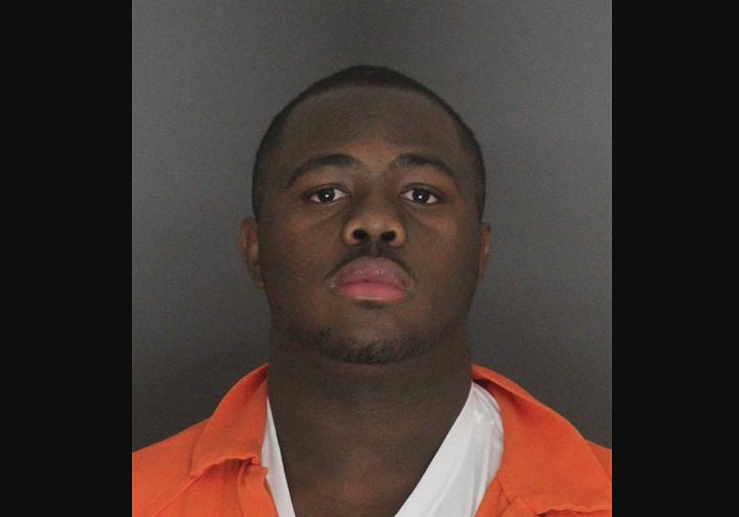FORT SMITH -- A Sebastian County Circuit Court jury on Wednesday convicted 18-year-old Dionte Parks of first-degree murder and two other felonies during the 2016 home-invasion robbery of a University of Arkansas at Fort Smith student.
The jury of six men and six women deliberated for nearly five hours before finding Parks guilty of first-degree murder, kidnapping and one count of aggravated robbery. A second aggravated-robbery charge was a component of the murder charge because the murder was committed during the robbery. It wasn't included in the verdict.
Circuit Judge Stephen Tabor ordered jurors to return at 9:30 a.m. today for the sentencing phase of the trial.
Parks admitted to planning the robbery of his neighbor and acquaintance, 22-year-old Kaleb Watson, but Parks never went inside Watson's apartment on the night of Jan. 23, 2016. Shakur Sharp and his brother James, who were charged with the same offenses as Parks, were accused in the robbery of Watson and his friend Bailey Smith, during which Shakur Sharp fatally shot Watson.
Parks "is just as guilty of Kaleb Watson's death as if he had pulled the trigger himself," deputy prosecutor Alison Houston said in her closing arguments.
The law states that a person who aids an accomplice in the commission of a crime that results in a death is responsible for that death. Making a point, Houston said the driver of a getaway car who never goes into the bank is just as guilty of the robbery as his accomplices.
Testimony in the trial showed that Parks had suggested Watson was a good person to rob. He supplied the shoelace James Sharp used to tie up Watson and gave James Sharp his sister's tote bag for him to use to hold loot from the robbery, according to testimony.
Houston referred to Parks as the mastermind of the robbery scheme.
But Parks' attorney, assistant public defender Rita Watkins, argued that her client did not have the mental capacity to plan the robbery or to understand the repercussions of his actions.
The Sharp brothers took advantage of Parks' disabilities, she said, saying his thought processes were that of a third-grader. He was in 10th grade when he was arrested in 2016.
"Dionte Parks is no murderer. Dionte Parks is no mastermind. Dionte Parks is not guilty," Watkins told jurors.
Testifying for the defense Wednesday, psychologist Curtis Grundy said Parks suffered from the mental defect of having intellectual disabilities, but that he did not suffer from a mental disease.
In addition to the intellectual disabilities, Grundy said, Parks had delayed development as a baby and young child, and he had discipline, academic, emotional and other problems in school. He was transferred to special education in the seventh grade.
But under cross examination by Houston, Grundy said he believed Parks could appreciate the criminality of his actions at the time of Watson's murder and he had the capacity to conform his behavior to the requirements of the law.
Grundy qualified the statement in his testimony under Watkins. He said Parks could appreciate the criminality overall of his conduct, but the planning for the scheme was simplistic and his lack of sophistication and poor judgment were limitations to comprehending the criminality of his actions.
In rebuttal, the prosecution called Little Rock psychologist Paul Deyoub, who evaluated Parks in March. He concluded in his report that Parks had conduct disorder, mild intellectual disability, attention deficit/hyperactivity disorder and that he used marijuana.
Like Grundy, Deyoub said Parks could appreciate the criminality of his conduct and had the capacity to conform his behavior to the requirements of the law.
State Desk on 06/28/2018


